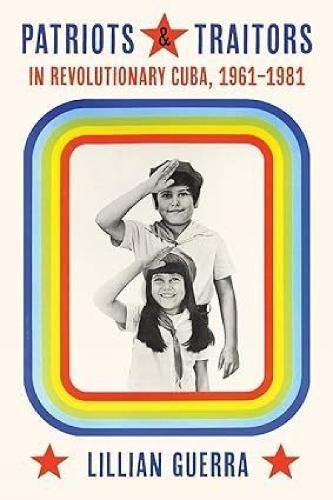Readings Newsletter
Become a Readings Member to make your shopping experience even easier.
Sign in or sign up for free!
You’re not far away from qualifying for FREE standard shipping within Australia
You’ve qualified for FREE standard shipping within Australia
The cart is loading…






Explains the Nuts-and-Bolts of Collective Indoctrination and Political Integration Programs and the Resulting Cultural Changes. Authorities in postrevolutionary Cuba worked to establish a binary society in which citizens were either patriots or traitors. This all-or-nothing approach reflected in the familiar slogan "patria o muerte" (fatherland or death) has recently been challenged in protests that have adopted the theme song "patria y vida" (fatherland and life), a collaboration by exiles that, predictably, has been banned in Cuba itself. Lillian Guerra excavates the rise of a Soviet-advised Communist culture controlled by state institutions and the creation of a multidimensional system of state security whose functions embedded themselves into daily activities and individual consciousness and reinforced these binaries. But despite public performance of patriotism, the life experience of many Cubans was somewhere in between. Guerra explores these in-between spaces and looks at Cuban citizens' complicity with authoritarianism, leaders' exploitation of an earnest anti-imperialist nationalism, and the duality of an existence that contains elements of both support and betrayal of a nation and of an ideology. AUTHOR: Lillian Guerra is professor of Cuban and Caribbean history at the University of Florida. She is the author of several poetry collections, a short story collection, and four books of history, including Visions of Power in Cuba, which received the Bryce Wood Book Award from the Latin American Studies Association.
$9.00 standard shipping within Australia
FREE standard shipping within Australia for orders over $100.00
Express & International shipping calculated at checkout
Explains the Nuts-and-Bolts of Collective Indoctrination and Political Integration Programs and the Resulting Cultural Changes. Authorities in postrevolutionary Cuba worked to establish a binary society in which citizens were either patriots or traitors. This all-or-nothing approach reflected in the familiar slogan "patria o muerte" (fatherland or death) has recently been challenged in protests that have adopted the theme song "patria y vida" (fatherland and life), a collaboration by exiles that, predictably, has been banned in Cuba itself. Lillian Guerra excavates the rise of a Soviet-advised Communist culture controlled by state institutions and the creation of a multidimensional system of state security whose functions embedded themselves into daily activities and individual consciousness and reinforced these binaries. But despite public performance of patriotism, the life experience of many Cubans was somewhere in between. Guerra explores these in-between spaces and looks at Cuban citizens' complicity with authoritarianism, leaders' exploitation of an earnest anti-imperialist nationalism, and the duality of an existence that contains elements of both support and betrayal of a nation and of an ideology. AUTHOR: Lillian Guerra is professor of Cuban and Caribbean history at the University of Florida. She is the author of several poetry collections, a short story collection, and four books of history, including Visions of Power in Cuba, which received the Bryce Wood Book Award from the Latin American Studies Association.